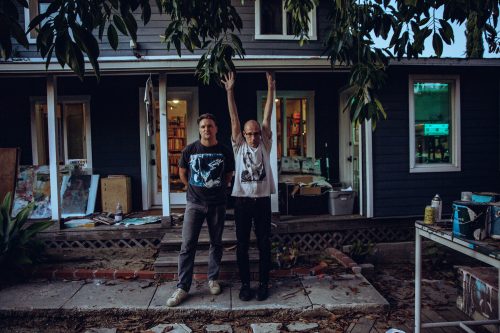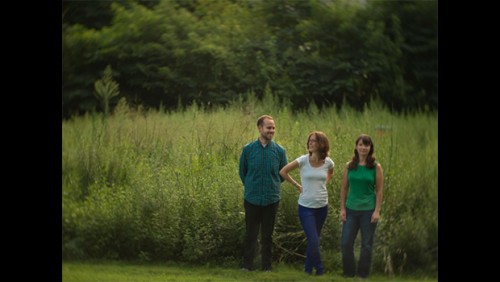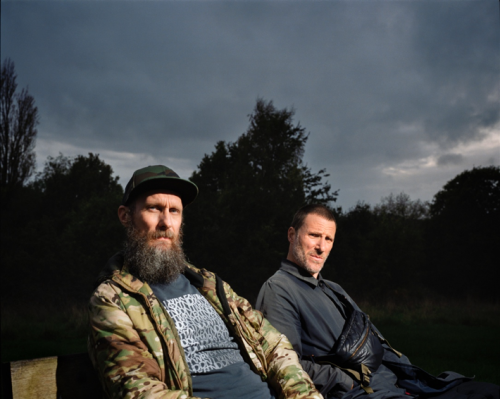Consistent isn’t the sexiest adjective you could pick to describe a band. But it’s a valuable and hard-earned one that suits Cold War Kids, the alt rock band that has been churning out memorable anthems for two decades.
Formed in Long Beach, California, the group has been through many lineup changes and stylistic shifts during a career arc that has generated hit songs like “Hang Me Up To Dry” and “First” and a catalog of albums and EPs that hang together as a solid (another unsexy descriptor) body of work.
“Obviously, this is the only experience I have, but from where I sit, where I see Cold War Kids is this really interesting in between so many things,” Nathan Willett, Cold War Kids’ leader, vocalist, pianist and guitarist, says from his home in Los Angeles before a tour that includes shows at Webster Hall on March 1 and 2. “We have peers that go like, how do you guys get on the radio and have this wider exposure? And at the same time I see other people that might have the radio and the wider exposure but no sort of roots and credibility. We’re just straddling this line, not playing amphitheaters or anything like that, but doing what we do and having it just be very consistent and solid.
“On the one hand, I want us to grow and expand and play to more people and have people know every song on a record and know all the moments we’ve gone through, but at the same time just maintaining the size of venues and tours that we have done for many years is its own huge success. So many bands get to a certain level and then you see them on the way up and on the way down, if you look at like Setlist FM or something and you see, Oh, that’s the venue they started out at 20 years ago. So maintaining success is a thing.”
Following the November release of its self-titled 10th album, the band earlier this month announced a vinyl-only EP to be released for Record Store Day on April 20.
Here are some highlights from our wide-ranging conversation with Willett.
Can you tell me a little about the new EP?
Yes. It is first time I’ve talked about it, actually, because it’s a Record Store Day-only thing, which we always love those like exclusive things, there were songs that were kind of left over from the record, didn’t fit on the record, and it’s so often the case where those songs kind of can be put together in an EP. A good friend of ours said at one time, you guys always end up putting a lot of your best songs on your EPs, which I think there’s something strange to that, like the leftovers that don’t belong on the record even though they might be really good songs that just don’t fit.
I’m really excited about these, some of them are a little different. I kind of wanted to have it be the kind of thing where it comes out on vinyl only before you can get a hold of it digitally.
Now that the self-titled album has been out since November and you have the benefit of some time away from it, how do you feel about it?
I feel good. I feel really proud of it. The first leg of the tour, it’s been a really incredible experience. It’s almost been kind of shocking to me how how long it’s been since we’ve done a headlining run of our own after the pandemic and just how fun it is to do that. A bunch of nights I just like walked right off the stage and to be able to just talk to fans and have the most incredibly, I don’t know, nourishing experience just talking to people and hearing their stories and hearing their excitement about the music and everything.
That’s good to hear. Cold War Kids have been together for 20 years and I wonder if there are some things that have changed about the way you work as a band.
Oh, so many. When we started off, every band that we sort of knew was a group of people that are just kind of collaborating and keeping it very open, like the mystery of who did what and why did something come together, you almost don’t even really know, you just sort of work really hard and what comes out is what you made together. That type of collaborative band mentality, I think for everybody who’s done it knows there’s a shelf life, that when it hits, you suddenly go, Oh my God, we’re completely out of juice and we have to either just quit or you find different ways to see if you can make it work different ways.
A few records in for us, I switched it up a lot. I started working with different producers, collaborators, working with different arrangements of band guys. Being more deliberate about the songwriting and who’s in the room and why.
The short answer is that I started it off very collaborative with the four of the original band members. Right now for me it’s about finding the energy keeping the pendulum swinging, with the band guys and producers and one-on-one or group or whatever it is, but just kind of keeping it a revolving door.
I wanted to ask about Cold War Kids’ collaborations. Whether writing, recording or on tour, what are some of the high points for you?
I mean, the early days when we toured a lot we just had these long stretches where we toured with like Clap Your Hands Say Yeah, Dr Dog and Elvis Perkins, and there was this special chemistry that these groups had and we were all at such a similar place starting off and just had this like insane optimism. It was just so special. [Those artists were from] the and like we just being Southern California kind of suburban kids, we grew up going to a lot of punk shows and the influences that we had, we didn’t have a lot of peers in terms of what was going on around us that we liked. So I think we’ve found a that before the Internet, not before the Internet existed, but before it really existed to us, so I guess you [touring with those acts] was our source of like, Oh, there’s a place for us in the world.
When you take the stage with the band, what is your intention?
It’s complicated. It’s so many things, a balance of so many things. You want to put on a great show, wanting to entertain but also wanting to have like a mystical experience, wanting to have like a breakthrough of some kind where it feels like being in that room is something more special than just performing these songs and just us on stage, but a group of people who are all there in person together in those moments. I think you have to kind of, and this is again something I’ve been more aware of on this tour because of the last few stretches we’ve done ,we opened for Kings Of Leon, we opened for Tears For Fears, and those were really cool, but obviously not our shows and much bigger shows, but getting back to the thing where it’s like, OK, this is just ours. It’s a weird, huge responsibility. We can kind of do whatever we want, make it just ours, true to who we are and where we’re going and all that stuff. So it is abstract, the intention, though I think is to kind of have something of a transcendent moment of a connection through the songs but that is greater than any one thing that you could point to.
I think we only have two minutes left so I just wanted to leave it open for you to talk about anything else going on with the band. What does the rest of the year look like for you guys?
I definitely think in terms of this self-titled record and finishing it and getting it out, I think it was a sort of a longer gestation process and the next thing I think will be a lot different in terms of just sonically in production. [The self-titled] one’s a lot more curated, working with these producers, like this guy Malay, who’s done Frank Ocean to Lorde, and Ethan Gruska; all these producers that come from a much different palette. I think this next one that we do, I want it to really be sort of a live band is all there included in the room, and listening to a lot of ’70s bands, The Jam and The Pretenders and stuff that, is just sort of very performed and very muscular and instrument-oriented.
Photo by Sean Flynn




Leave a Reply